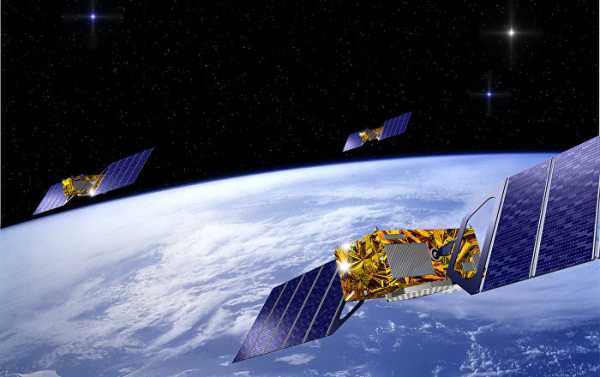
Theresa May adopted an “everything or nothing” stance on the EU’s joint global navigation project.
The UK wants to remain a partner in the development of the European satellite navigation system Galileo, but will have to develop and build its own national counterpart if the EU refuses to change its mind, reports the Guardian, citing Prime Minister Theresa May.
Despite all the troubles negotiating Brexit trade deals with the EU, the Prime Minister threatened to spend $118 million on the initial scoping study for the British navigation system.
If the EU kicks London out of Galileo, that would mean that the $1.5 billion of UK money already spent on Galileo would be wasted, and developing the national system would “almost certainly cost several billion pounds,” according to the Guardian’s estimations. Some cabinet ministers suggested filing a lawsuit, demanding the money already spent on Galileo back, the newspaper reads, but these propositions have not yet come to any fruition.
The Guardian opined that May has chosen to use the language of threats to remain a core developer of Galileo, while saying it is unacceptable for London to be “an ‘end user’, shut out from security discussions and contracts, and without critical information about the system’s security.”
“So unless we receive assurance that we can collaborate on a close basis in the future — like the close security partners we aspire to be — we are clear that we will withdraw UK support for Galileo and pursue our own sovereign satellite system. And this is not an idle threat to achieve our negotiating objectives,” the newspaper quotes the UK Prime Minister saying.
It should be noted here that Galileo is not yet operational and is expected to be launched by 2020, with a constellation of 24 satellites in orbit. Right now, the UK uses the US-built GPS system, and should GPS, for some reason (such as war with the US) become unavailable in Britain, London would suffer some $1 billion in losses every day, because of how deeply satellite navigation is embedded in everyday business operations, according to the government’s statement.
In fact, the UK could, in theory, switch to the only existing global alternative to GPS — Russia’s Glonass network, as iPhones and many other mobile telephony platforms come with built-in Glonass support. Basically, using two navigation systems at once should save London from a sudden navigational catastrophe (let’s just not think of what would happen should the UK find itself in a war with both US and Russia at the same time), and we believe some readers already sensed the irony here. Besides, China expects to make its own BeiDou navigational system global by 2020 as well.
In this light, spending $118 million on a study and, probably, several billions on top of that might raise some questions.
Sourse: sputniknews.com






